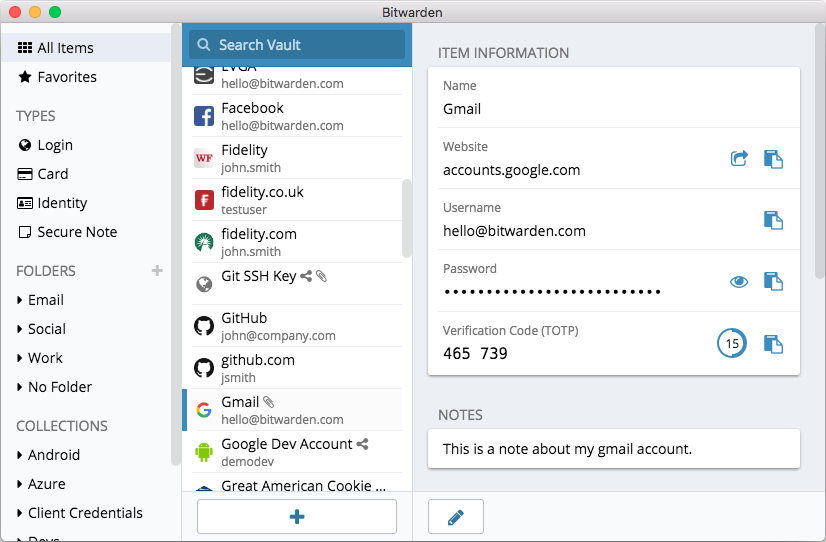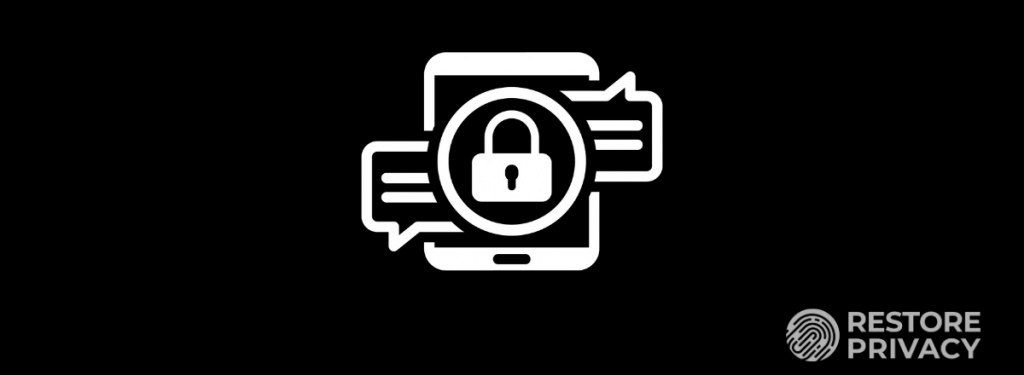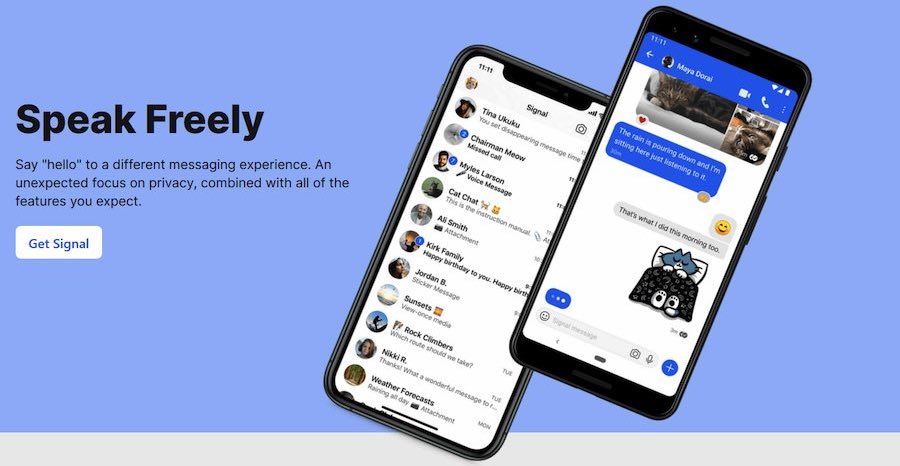
The world is changing fast and your private data is at risk whenever you go online. Numerous entities, both public and private, are working hard to track, monitor, and record your digital activities. There are many reasons for this:
- Advertisers (including Google and Facebook) want to know everything about you, including your web browsing history, location data, contacts, and more. This makes it easier (and more profitable) to serve you targeted ads and influence your purchases.
- In an age of pandemics and lockdowns, many governments around the world are working hard to track movement and biometric data of their citizens.
- ISPs (internet service providers) are spying on their customers and feeding this data to various third parties, including advertisers and government agencies. In many countries, this is not only legal, but required. See for example in the United Kingdom (with the Investigatory Powers Act), United States (Senate Joint Resolution 34), and now also in Australia (mandatory data retention).
- The internet is also becoming less free due to censorship efforts and content blocking. Whether it is China, Germany, the UK, or the United States, various groups are working hard to censor content online.
But don't get discouraged. Alternative technologies are experiencing a renaissance as awareness about these issues grows and people seek out solutions. Indeed, for all of the problems listed above, we find excellent solutions to give you more privacy, security, and freedom in your digital life. And that is the purpose of this guide: to give you solutions. Here's what we'll cover in this guide:
- Secure and privacy-focused browser
- Virtual Private Network
- Ad blocker
- Password manager
- Secure and encrypted messaging
- Private search engine
- Private email
- Operating system
- Antivirus software
- Data removal tools
But before we begin, one key consideration is your threat model. How much privacy and security do you need given your unique situation and the adversaries you may face?
Most people today are seeking protection against online tracking by advertising networks as well as a higher level of privacy and security. Others, such as investigative journalists working with sensitive information, would likely need an even higher level of protection. So keep this in mind as you proceed. Everyone is unique in their approach to privacy and security; there is no one-size-fits-all solution.
So here's what you need:
1. Secure and privacy-friendly browser
Everyone needs to be using a secure and privacy-friendly browser for three important reasons:
- Browsers have a large attack surface and can be compromised in many ways.
- By default, most browsers contain lots of private information, including your browsing history, usernames, passwords, and autofill information, such as your name, address, etc.
- Browsers can reveal lots of identifying information about your location, system settings, hardware, and much more to third parties.
Secure Browsers: Based on my own tests and experience, here are the most secure browsers that also respect your privacy:
- Brave – Brave is a chromium-based browser that is very privacy-focused right out of the box. By default, it will block ads and trackers, and it's also customizable, fast, and has built-in protection against browser fingerprinting.
- Firefox (modified) – Firefox is a great browser for both privacy and security after doing some modifications. It is highly customizable to give you the level of security and privacy you desire, while also being compatible with many browser extensions. See our guide on how to modify Firefox for more privacy.
- Tor browser – The Tor browser is hardened version of Firefox that also utilizes the Tor network by default (but this can be disabled).
- Ungoogled Chromium – As the name suggests, Ungoogled Chromium is a stripped-down Chromium browser that has been “Ungoogled” for more privacy. Source code is here.
- LibreWolf – This is a fork of Firefox that has been tweaked for more privacy and security.
Of course, there are many browsers on the market and choosing the best one all comes down to your own needs and tastes. Chrome, Opera, Safari, and Vivaldi also get some attention, but they're not the best choices from a privacy standpoint.
2. Virtual Private Network (VPN)
Using a good VPN (virtual private network) is one of the simplest and most effective ways to protect your privacy, secure your devices, and also access blocked content online. A VPN is a critical tool to be using, especially with internet service providers spying on their users and logging all activity.

Here are some of the problems that VPNs can solve:
- ISP Spying – A VPN will encrypt and anonymize your internet connection. This makes your traffic completely unreadable to your ISP and other third parties.
- Blocked content – A VPN will let you easily get around blocked content and censorship. Simply connect to a VPN server in the region you need and access the website or stream as normal.
- IP and location tracking – Many websites and advertisers track users through their IP address. With a VPN, your IP address and location will be replaced by the VPN server's IP address and location.
- Copyright issues – Torrenting and streaming media from third-party sources can come with some risk in the form of copyright issues. A VPN will anonymize your IP address and help keep you safe.
We've tested all of the popular VPN services and the results can really vary. Below are our current recommendations that are private, secure, fast, and reliable on many platforms.
- NordVPN – Best all-around VPN with secure apps for all major devices and very fast speeds (over 750 Mbps). Great for streaming plus extra security features (with a 77% off coupon).
- Surfshark – Best VPN for many devices (unlimited)
- Proton VPN – User-friendly and private VPN in Switzerland
- ExpressVPN – Secure and reliable VPN service
We have other recommendations and providers in our guide on the best VPN services.
And if you are new to VPNs, we also have a guide on how to use a VPN.
3. Advertisement, tracker, and malware blocker
A good ad blocker is essential for privacy and security reasons. From a privacy perspective, it's important to block ads because they also function as tracking by recording your online activity to create an intimate user profile. This data is then used for targeted ads and/or sold to other parties.
Ads are also risky from a security perspective because they can contain malicious code that can infect your device when a web page loads – no clicks required.
Effectively blocking all ads is the only way to go. Here are a few different options from our guide on the best ad blockers:
- Browser ad blocker extensions – Browser-based ad blocker extensions, such as uBlock Origin are quite popular, but they also come with some tradeoffs. Online ads may still be using up resources and tracking you, even if the ads are not being displayed. Choose your ad blocker carefully – some ad blockers will collect user data for profit and/or show you “approved” ads.
- VPN ad blocker – There are now many VPNs with ad blocking built in. With this method, the VPN can effectively block ads, trackers, and malware at the VPN server, thereby protecting your devices.
- Ad blocker apps – A dedicated app will most likely do a very good job blocking ads on your device. One popular and well-regarded option is AdGuard.
- Ad blocking on a router – Ad blocking on a router can be accomplished various ways – from using ad blocking DNS to loading custom filter lists onto your router.
- Pi-hole – Pi-hole is a network-wide ad blocker that functions as a DNS server and can be deployed in various ways. It is most often used on a Raspberry Pi, connected to your home router (but there are many other different setup options).
The best ad blocking setup will depend on your situation and needs. If you have numerous devices you use at home, setting up a network-wide ad blocker would be a good solution for blanket protection. uBlock Origin remains a popular option for browser-based ad blockers. However, I like NordVPN with the Threat Protection feature as a simple, all-in-one solution for VPN and ad-blocking.
4. Password manager
The topic of passwords is actually quite large, encompassing password strength, password management, and password storage. In this section we'll focus on password management and storage. Many people store passwords directly in the web browser — but this can be risky.
A more secure method is to use a dedicated password manager app. And note that a dedicated password manager can also offer browser extensions that are convenient and secure. Here's a screenshot of Bitwarden, which is one of our favorites:

Here are the best password managers we have tested:
- NordPass – From the makers of NordVPN and NordLocker, NordPass is a secure, user-friendly password manager that has also passed a third-party audit. (See the NordPass review here.)
- Proton Pass – An open-source password manager with end-to-end encryption, cross-platform access, and advanced security features like 2FA and dark web monitoring.
- 1Password – Another great option is 1Password, with many features and strong security standards for all types of devices (our 1Password review has more info).
- Bitwarden – A free and open source password manager that is user-friendly and secure. (See our Bitwarden review.)
Start using a good password manager today. See also our guide on how to create strong passwords.
5. Secure and encrypted messaging apps

Many people are turning to secure and encrypted messaging apps over concerns with privacy and security of other popular messengers. For example, WhatsApp collects and shares data from your phone with Facebook, the parent company of WhatsApp. If you find this concerning (and you should), then consider some of the secure alternatives below.
Additionally, with the inherent limitations of email, we recommend a secure messaging app for those wanting the most secure messaging platform possible. The secure messaging apps below utilize strong encryption standards and work well for teams or individual use on various operating systems and devices.
- Signal – This is probably the most popular secure messenger with a rapidly-growing user base. It is free, open source, and very secure. We really liked how it performed in our Signal review — but also noted some drawbacks, such as the need to use your phone number for verification.
- Wire – Based in Switzerland, Wire is another great option that is secure, user-friendly, and fully featured. While there is a free version for personal use, it is hard to find, as described in our Wire messenger review.
- Threema – This is one of the few paid encrypted messengers, but it's only $2.99 for a lifetime license. Threema is also based in Switzerland and is open source. See our Threema review here.
- Telegram – Telegram is a very popular encrypted messaging app out of Russia, but it also is not encrypted by default. See the pros and cons in our Telegram review.
With all of the people abandoning WhatsApp and going over to Signal, there's a better chance to connect with people you know on a secure platform. This trend kicked off early last year and we hope to see it continue!

Note: Also keep in mind that standard SMS text messages are not secure or private. They can be read by your phone service provider and are susceptible to man-in-the-middle attacks and also eavesdropping by Stingray devices. When privacy matters, use a good secure messaging app.
6. Private search engine
The big search engines (Google, Yahoo, Bing) record and track your searches, which helps them to build a user profile for their advertising partners.
Consider these privacy-friendly search engines instead:
- Brave Search – an independent search engine developed by the makers of the Brave browser, using its own search index.
- MetaGer – An open-source metasearch engine with good features, based in Germany.
- Mojeek – The only true search engine (rather than metasearch engine) that has its own crawler and index (based in the UK).
- SwissCows – A zero-tracking private search engine based in Switzerland, hosted on secure Swiss infrastructure.
- Qwant – A private search engine based in France.
- DuckDuckGo – A private search engine based in the US.
- YaCy – A decentralized, open source, peer-to-peer search engine.
There are also a few “private search engines” that are now owned by advertising companies. For example, Startpage was bought out by System1, a pay-per-click ad company. For more information, see our guide on private search engines.
7. Private email
Many of the popular email providers, such as Gmail, Yahoo, and iCloud are not good choices when it comes to privacy. Would you want random people having full access to your emails, collecting data for targeted ads, or passing the information on to third parties? This actually happens.
- Gmail gives third parties full access to emails and also tracks all of your purchases by reading the receipts in your inbox.
- Advertisers are allowed to scan Yahoo and AOL accounts to “identify and segment potential customers by picking up on contextual buying signals, and past purchases.”
- Yahoo was found to be scanning emails in real-time for US surveillance agencies.
And while Gmail remains the most popular service in the world, you pay with your privacy. Consequently, as awareness about these issues grows, many people are seeking alternatives to Gmail.
If you care about privacy and the security of your data, consider these secure email services. Here are some excellent options:
- Proton Mail – Best for strong encryption (25% off coupon)
- StartMail – Private email hosted in The Netherlands (50% off coupon)
- Mailfence – A secure and customizable email service
- Tuta Mail – Secure Email for Any Device
- Mailbox.org – Affordable private German email service
- Posteo – Reliable anonymous email service
- Runbox – Private email in Norway
- CounterMail – Swedish email with strong security features
- Kolab Now: Swiss email, compliant with GDPR, HIPAA, and PCI
- Soverin – Basic private email service
And if you want to learn more, check out these reviews:
- Proton Mail Review
- StartMail Review
- Mailfence Review
- Tuta Mail Review
- Mailbox.org Review
- Posteo Review
- Runbox Review
- Fastmail Review
- Hushmail Review
Note: We also have a guide on encrypting email.
8. Operating system
Consider using the free and open source Linux operating system. There are many different versions of the Linux operating system designed for different types of users:
- If you want the look and feel of Mac OS or Windows, check out Elementary OS.
- Ubuntu, Mint, and Debian are other popular options.
Tails is another privacy-focused operating system that can be run live on a USB drive, CD, or SD card.
Problems with Windows and Mac OS
Windows – The latest version of Windows (Windows 10) is a platform built for total surveillance – giving corporations and governments complete access to everything you do on your machine. Aside from data collection concerns, most malware targets Windows users – another serious drawback and security risk.
Mac OS – While Apple may be slightly better in terms of privacy, it too has problems. Just like Microsoft, Apple has configured its operating systems to collect vast amounts of your private data, whether it is browsing history through Safari, connection data, location services, and more.
9. Antivirus software
While not necessarily a “privacy” tool, using good antivirus software may be wise depending on your situation. The problem, however, is that many antivirus solutions abuse your privacy and may come with some invasive and “unwanted” additions.
Just like with sketchy free VPN services, free antivirus software can also be problematic. In testing eight popular free antivirus suites, Emsisoft discovered that seven of them were bundled with PUPs (potentially unwanted programs), which can be harmful and very annoying. Tip: avoid free antivirus software!
Another major issue is privacy. Many popular antivirus suites utilize invasive data collection, to include browsing history, “suspicious” files, metadata, and more. Carefully read through the privacy policy of your antivirus before installing.
Although CyberInsider does not devote much attention to antivirus software, one solution that offers the highest levels of security while also respecting user privacy is Emsisoft. Another potentially good option, which is entirely FOSS, is Clam AV.
See also the antivirus privacy guide.
10. Data removal tools
As regular readers of this site know, personal data is valuable. In fact, there massive companies working behind the scenes to collect, compile, and sell your private data to third parties.
While there are good solutions for how to delete your digital footprint, there are also tools that take an active approach in targeting these data brokers. These types of tools and services are becoming increasingly popular, especially as the data collection problem becomes increasingly worse.
Here at CyberInsider, we have tested many different market leaders, such as DeleteMe and Incogni. Based on our tests and analysis, these are some of the top options:
- Incogni – Developed by the team behind the popular VPN service Surfshark, Incogni is a simple-to-use solution that focuses on efficient data removal across a wide network of platforms.
- DeleteMe – A popular choice that offers a wide variety of features and services designed to protect your privacy and keep your personal data away from data brokers and people search sites.
- Optery – A comprehensive tool that prioritizes the secure erasure of data from various databases, helping users regain control of their online information.
See the best data removal services here.
Conclusion: Restore your privacy and take control of your data
That's all for now, although this guide will continue to be updated with more privacy tools and information.
If you have any feedback, tips, or suggestions based on privacy and security tools you are using, feel free to drop a comment below!

Could you add private cloud storage suggestions?
Wow, am I that dimwitted, or is this some kind of trick Mandela Effect Thing? No, seriously: I did not notice the other day (Aug 2) that “Restore Privacy” now shows up as cyberinsider.com, and obviously, with my recent previous post, I was here, wherever that is. Still, I am more than a little spooked. (spoofed???) Can SOMEBODY please tell me that I am at the correct website? I did not see any notices that said anything like HI we used to be Restore Privacy, etc., which has me even more freaked out. I don’t know what to do. If I want this to post, I HAVE to leave my email address. Okay, I guess I will take that chance. But seriously, someone please let me know? PLEASE???
Hi Michael, there is one article remaining on RestorePrivacy announcing the merger here:
https://restoreprivacy.com/restoreprivacy-com-merges-with-cyberinsider-com/
Hi,
I have been a fan of this site and all that you do to help us out for a few years now. I tell people all the time that this is, when it comes down to NLFA (No Longer Fracking Around–though the F has obviously been edited to avoid offending anyone, but you get my meaning), when you are done playing the It won’t ever happen to me game, come here. And they often start with, “Yeah, but what about VPNs or Password Managers, etc.?” I still say, “You will find that, too!” I have never had anyone come back with a negative comment after checking your site out. Anyway, I have a question about a situation that is, odd though it may seem, a case of too much security. Let me explain.
My email address, which you can see below, is one I have been using for far, far too long! I tried to switch to another email service, I tried to do this with and without changing my email address (at least for those who accepted gmail type replacement addresses where you essentially “port” your gmail address to their service, etc. but my problem ends the same way: I need to give my old (current, as you see it) address to unlock basically anything. And furthermore, these sites insist on address ABC is you and this is like your Driver’s License or Passport (which oddly enough needs far less criteria to acquire, at least in the USA), your Birth Certificate, SSN Card, kitchen sink, etc. rolled into one. I can’t get away from this address! AND, unless I try to switch my Android to the equivalent of going from Win/Mac to Linux (I have, and will never go back!) to one that I think is called Murena or something like that? Unless I do that, which is NOT at ALL easy! I might as well make my own kernel and build an Arch system piece…by….piece. So I am stuck using many Googly-type of apps/software. So, how do I change my identity? Or at least my email, once and for all? Thanks again for all you do! (I do use specially modified Firefox) by the way.
Are there any plans to recommend a PDF reader/ tool?
There are more operating systems – BSD, which are not Linux: FreeBSD, NetBSD, OpenBSD and prety much secure.
What about ad hoc metadata removal tools like exifeditor.io or metadata2go (for videos), and similar tools? I feel like they have an important place in retrospective privacy ie. you’ve taken the photo, you have to accept it might have personal metadata on it (like location), but there’s ways of removing that from your photos before uploading them to the many sites that don’t scrub it before hand. Strava was a good recent example!
Over the past five or more years, there have been any number of privacy tools, like Bromite or Pocket, that have been started only to later and suddenly end, disappear, or collapse. This video has some good information to avoid getting burned down the line.
https://youtu.be/IZKYZByXtRY?si=bYrhedlICvZ9B_A-
Hi Alex,
Boy! Am I glad I can still find you and your guides.
The direction of the RP domain to the sitemap is a fantastic idea! I do admit that I used Google dorking to quickly navigate to this page.
I have a friend who wants to become more cyber secure and private, I said. “I’ll give you a link that will give the top 10 recommended steps.” These steps here, are actually not where he needs to start – he has quiet a bit of a bit of cleaning up to do which is more important. I am going to give him a break down of those beginner steps.
I will also recommend him to here, noting that some or the options are not realistically achievable for him – though many are.
I am not buying a new knew subscription for another nine months. When I do I will be looking for the best offer for the full suite. I am happy where I am – I intend to look for a coupon that includes the full suite. For my friend, if he is interested, I am going to say you need a full suite option, go with Nord or Proton, decide on which one fits you best.
I wish you the best, the RP education has been amazing,
I noticed that your private search recommendations don’t match your article of the 10 best private search websites. I think you would want them to match-up.
I didn’t check the others like VPNs, Browsers, Messaging, etc. I suggest you double check those too.
Good tips, thanks Michael, we’ll get that fixed.